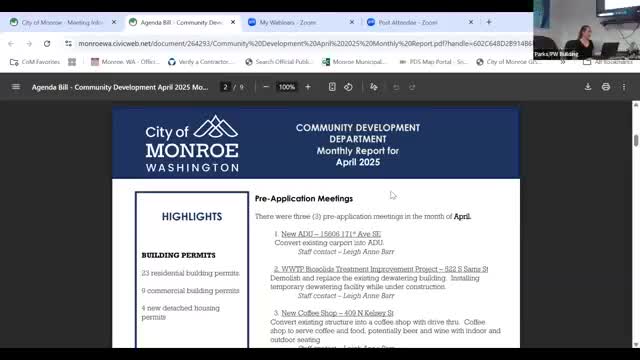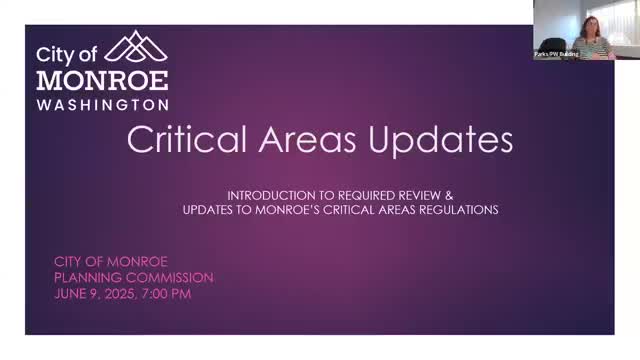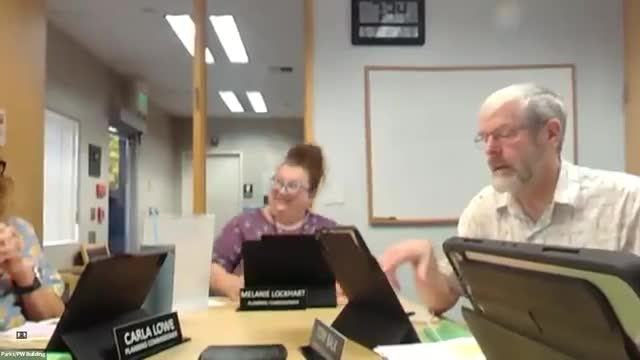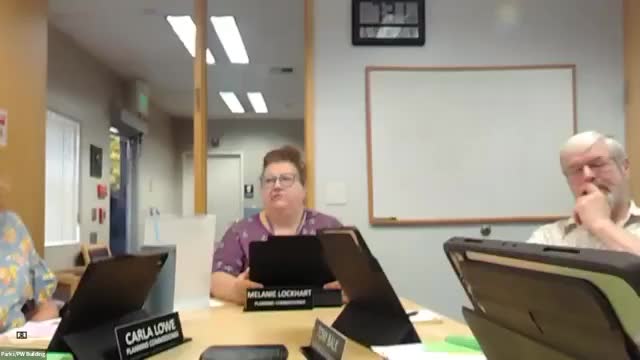Article not found
This article is no longer available. But don't worry—we've gathered other articles that discuss the same topic.

Planning commission adopts unit‑lot subdivision changes despite concerns over separate utility hookups

Community Development report: April permitting highlights and updates on Monroe 30 and other annexations

Commission begins multi‑month update of critical‑areas regulations; focus on best available science and avoidance

Staff outlines SB 5290‑driven permit processing changes, new timelines and fee refund concept

